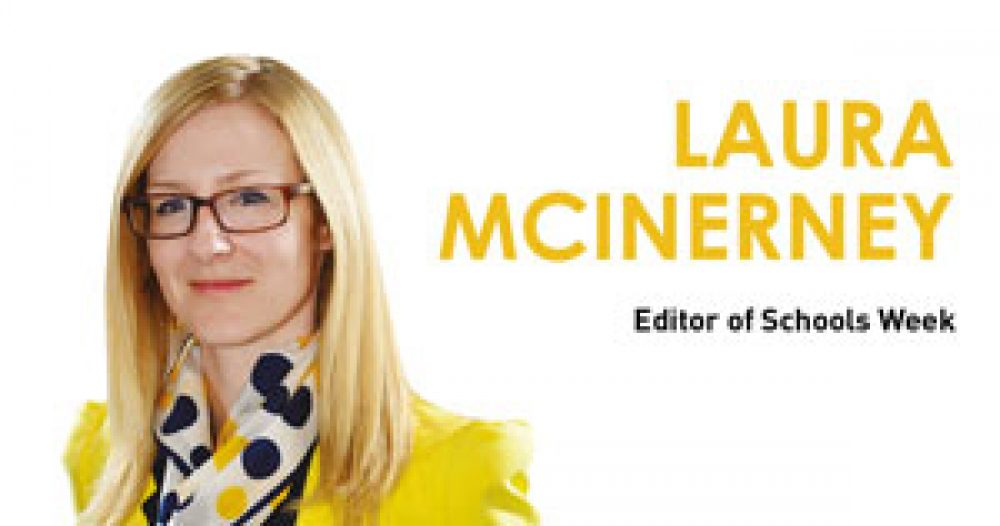Schools should not make parents show their children’s passports. For anything.
That’s a really simple rule. It’s also a rule the Department for Education won’t write that clearly. I don’t know why. But it should.
So let us be clear. Schools have no right to make parents show a passport. Schools do not need to see a child’s passport to admit them. Parents absolutely can refuse to show their child’s passport and still receive a free education for them.
Schools must now ask parents for their child’s country of birth and nationality, but there is no requirement that parents give it, nor that schools pass the information to the government. If parents refuse to tell you, just leave the box empty.
We live in unusual times as far as national identity goes. For the first time in generations we are actively retrenching our open borders and there is a sense that immigrants are less welcome than in the past.
(We don’t need to kid ourselves that England has been overly welcoming in the past, but things certainly seem worse right now.)
If among this growing sense of uncertainty, schools jump in and heavy-handedly ask parents to hand over passports so they can give information to the government, there is a genuine risk that parents will withdraw their children altogether and children not getting an education is never a good outcome.
Luckily, the Department for Education has confirmed, clearly, that passport checks are not a requirement for schools and headteachers should, as the leader of the Association of School and College Leaders says, cease this practice and apologise if they have inadvertently parents that they must hand over their papers.
Schools have no right to make parents show a passport
But with an impending clampdown on immigration, it isn’t beyond the realms of possibility that a Home Office minister has the bright idea of using school administration checks to find undocumented persons.
The school community needs to be ready to point out that any such moves would not be a good idea. They would be a very bad one.
Document checks on entry to school are likely to lead to vulnerable groups, wary of government administration and fearful of their place in the country, to keep their children away from schools and instead put them into unregistered institutions. Pupils in these school are at a higher risk of radicalisation and sexual exploitation, as Ofsted’s recent investigations have found.
Document-checking is also stigmatising – treating one group of children as “other” for no good reason. Imagine being a parent receiving the sort of email highlighted in our cover story, in which you are told that if you are white you are presumed to have been born in Britain, but if your skin is black then you must write in and explain yourself. Does that sound welcoming to your child? Would you feel confident that your child was going to be treated equally?
If schools are ever compelled to check passports and birth certificates, and then forced to send this information to the government, it would drive a wedge between its leaders and the communities they serve. After all, whose side are headteachers on? Should they put the educational benefit of a child attending school ahead of the government’s desire to clamp down on over-staying immigrants – or vice versa?
This is not to say we should worry, unthinkingly, about the collection of data. More information about children could be a help. For instance, it would be useful to have much finer detail about the languages children speak at home.
We previously reported how achievement data for ethnic groups often mask huge variations. For example, pupils identified as black African and speak Igbo achieve highly in their GCSEs compared with the national average, whereas Portugese-speaking children of black African heritage have a GCSE pass rate only half the national average.
It therefore makes sense for schools to ask for information about a child’s nationality and birthplace. But this needs to be done in a kind, informed, considered and, ultimately, optional manner.
Schools are not mini-immigration offices and everyone should be alert to ensure they are not pushed to become so.








We lived in New Zealand for a few years and this was necessary there – had to show passports (and immunisation documentation) to schools to provide evidence of our residence status.
I can see that schools asking to see passports is a contentious issue, but as a taxpayer for the last 40 years I am not in favour of my taxes being used to educate students who have no right to a free education in this country. English education is under huge financial pressure and clearly we cannot afford to educate the world for free. It’s the same argument for the NHS.
I don’t know how large a problem this is. It is probably impossible to find out the size of the issue because no one has an accurate idea about who actually lives in the country.
We need a mechanism that ensures everyone is treated fairly and equally, and where taxpayers don’t feel they are being taken for a ride. The New Zealand model described by TEJ above sounds like a good way forward.
Not everyone who is here legally is entitled to free education. Those on a third tier visa (student) where the course is less than 6 months are not entitled to free education unless an EU citizen.